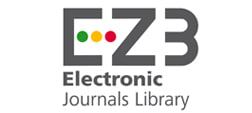Abstract
Traditional medicine using Jasminum leaves to treat oral health problems is expected due to easy access. Furthermore, due to the rising issue of antibiotic resistance, discovering a natural antibiotic that can effectively replace synthetic antibiotics would be valuable as natural antibiotics can cover the benefits, challenges, and future development. This study aims to assess the antimicrobial properties of ethanolic and aqueous extracts of Jasminum sambac L. leaves at the concentration of 50, 150, and 250 mg/ml against E. coli ATCC 25922, P. aeruginosa ATCC 10145, S. aureus ATCC 33591 and B. cereus ATCC 11778, C. albicans ATCC 10231 and A. niger ATCC 16404 using disk diffusion test and 96-well plate. The ethanolic extract showed antimicrobial activity against E. coli ATCC 25922 and A. niger ATCC 16404 with inhibition zones 9.33±0.67 mm (50mg/ml), 9.67±0.58 mm (150mg/ml), 10.00±0.33 mm (250mg/ml) and 12.33±0.33 mm (50mg/ml), 13.33±1.67 mm (150mg/ml), 19.67±0.33 mm (250mg/ml), respectively. Meanwhile, aqueous extract only showed antimicrobial activity against A. niger ATCC 16404 with the zone of inhibition 15±1.15 mm (50mg/ml), 23.0±1.15 mm (150mg/ml), and 24.0±0.58 mm (250mg/ml). The MIC value for ethanolic extract against E. coli ATCC 25922 was 50 mg/ml, and the MBC value was 250 mg/ml while, against A. niger ATCC 16404 was 18.75 mg/ml, whereas the MFC value was 250 mg/ml. The results showed that the antimicrobial properties of J. sambac leaf extract were still shown in the maceration method, which justifies the tribal uses of J. sambac leaf against oral-associated pathogen infections.
Recommended Citation
Rizal, Sarah Saiful and Wan Abdul Razak, Wan Razarinah
(2024),
Antimicrobial Properties of Jasminum sambac Linn Leave Extract on Selected Oral Associated Pathogen,
AUIQ Complementary Biological System: Vol. 1:
Iss.
2, 11-20.
DOI: https://doi.org/10.70176/3007-973X.1011
Available at:
https://acbs.alayen.edu.iq/journal/vol1/iss2/2
Digital Object Identifier (DOI)
10.70176/3007-973X.1011













Follow us: